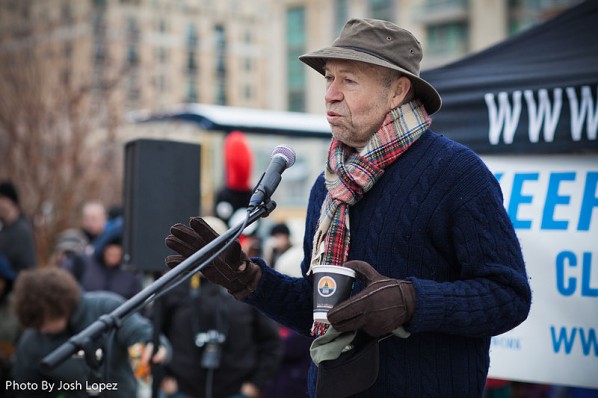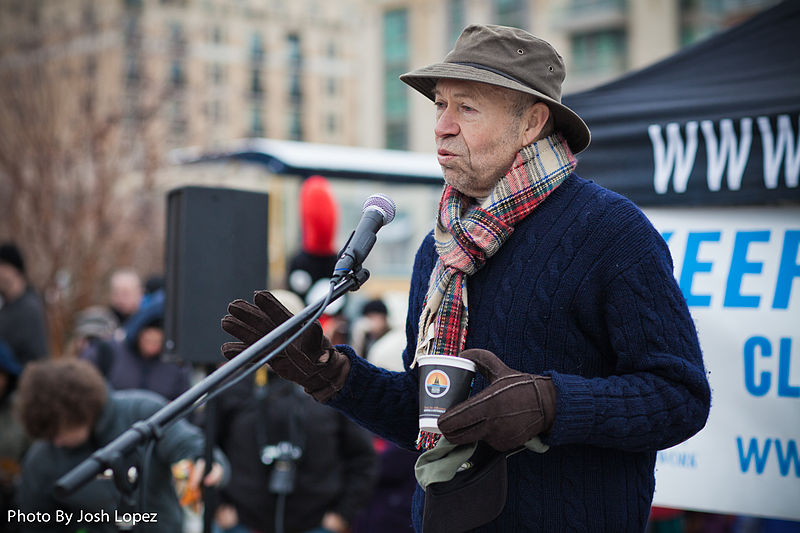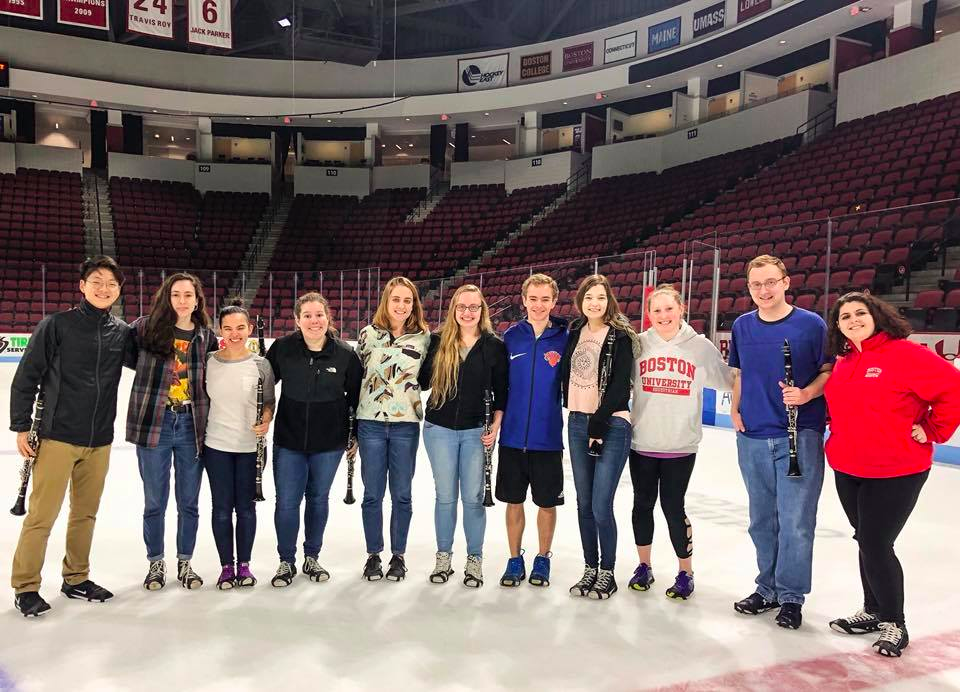
Not a day goes by we don’t face value-based decision on what we eat or how we interact with the natural environment. Those choices are not always clear on a personal scale, but when considered socially, issues like food and environment become more important and even more convoluted.
These kinds of issues leave scientists with a murky decision: should they offer thoughts on the implications of their research or is their input limited to scientific analysis?
This debate has been a constant in the scientific community, flaring up in the face of high-stake issues fueled by controversy like climate change and the genetic engineering of crops (the GMO debate).
On one hand, some scientists say it’s not their place to say more about their research than what is in the data. Tamsin Edwards of the University of Bristol (in England) said as much in the Guardian about the climate change debate not so long ago.
She argued that advocacy among climate scientists compromises their objectivity and damages the public’s trust in science, fueling climate skeptics’ belief that scientists’ work has been influenced by environmental activism. The way to fight that view, she writes, is by remaining completely neutral:
I care more about restoring trust in science than about calling people to action; more about improving public understanding of science so society can make better-informed decisions, than about making people’s decisions for them. Science doesn’t tell us the answer to our problems. Neither should scientists.
Still, other scientists view their expertise as an important or even vital contribution to conversations about scientific issues. The complex web of facts, research and speculation surrounding scientific matters make it difficult for the public and officials to get a proper grasp on those issues’ significance and how they should be tackled.
“Democratic societies depend on getting good information to the public,” said Doug Gurian-Sherman, a senior researcher and blogger for the Union of Concerned Scientists, a charity that uses research and analysis to develop potential solutions to environmental and sustainability issues. “[Scientists] are the folks who have the expertise to contribute to the debate.”
When it comes to things like how we affect our environment and the food we eat, sometimes even the question of whether the research presents an issue is contentious enough on its own.
“These are complex issues of the intersection between society and science,” said Gurian-Sherman.
That being said, not every scientific matter carries such heavy implications. Plus, scientists are human beings, and just like everyone else, not every issue compels them to speak out.
Gurian-Sherman examines topics with a sort of criteria, including if they have broader implications for society, are potentially harmful, or if there’s a risk the data is incomplete.
In a recent op-ed from Michael E. Mann, director of Pennsylvania State University’s Earth Science Center, argues that climate change is one of those issues about which scientists should contribute to the discussion.
While there are very few scientists who disagree that climate is changing because of human activity (the UN Intergovernmental Panel on Climate Change’s report said as much), Mann says scientists should be more willing to comment on what that means and what should be done about it.
“There is a great cost to society if scientists fail to participate in the larger conversation — if we do not do all we can to ensure that the policy debate is informed by an honest assessment of the risks,” Mann writes.
He also readily admits there was a time not so long ago when he declined to comment on the implications of his work. But, as a climate scientist, he says he sees a real danger in climate change.
What’s more, climate change is not the only danger driving Mann to speak out. In the absence of voices from objective scientists, Mann and Gurian-Sherman both fear the public discourse would be dominated by more subjective sources motivated by short-term economic interests.
Gurian-Sherman said this is especially true of the debate over GMOs, in which companies that sell genetically modified organisms have obvious interests in labeling their products safe, but are more or less solely responsible for assuring the safety of their products. Combined with the risk involved in a technology that alters the crops we consume, Gurian-Sherman sees a need to ask whether it is the best way to increase production.
“It’s compelling because it’s in the food supply,” he said. “If it were lamp shades it would be a different story.”





Jake–Of course, scientists should be advocates if and when the seriousness of the problem (climate change) is such that doing nothing may result in the collapse of industrial civilization. You think this is farfetched? Speaking as a geologist, I assure you it is not. On a broader scale, our freedom, not only in America, implies our responsibility to take part in debate, to act as political persons, participating in discussions involving much more than just ourselves. To allow some of the dictates of our leaders and fellow citizens to go unexamined, or unchecked, is dangerously foolish. We should always be responsible citizens of the planet, our only habitat.